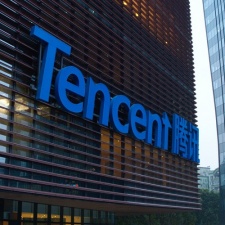
Tencent has sold one of its app stores to livestream platform operator Huya, whom Tencent became the largest stakeholder in back in 2020 with a 50.1% stake. Following Huya’s purchase of the store, its stock price raised by approximately 4%.
China’s shock declaration that it intends to ban gacha mechanics and loot boxes, limit in-game spending and gaming incentives, and more, caused Tencent to lose billions in share value at the end of 2023. But before then the Chinese tech giant had already begun divesting and parted with its less essential business operations like Tencent Animation, which it sold to China Literature Ltd earlier in December.
Times are changing
As noted on Bezinga, US security filings revealed days earlier that Huya had bought an unnamed app service provider from Tencent for $81 million, speculated to be APKpure. Huya intends to boost its international distribution abilities through the purchase and synergise with NimoTV, its international livestreaming platform for gaming.
And while Tencent’s recent divestments don’t directly follow the latest Chinese changes, they do follow a general inconsistency in recent years – from licence freezes to playtime restrictions to livestream regulatory overhauls.
Tencent’s investments have decreased too, with the 35 made in 2023 marking one of its lowest investment years in almost 10 years.
Tencent also closed Team Kaiju in 2023, initially intended as part of an overseas expansion strategy. Between this and its wave of game promotions on its former rival ByteDance’s platform, it’s clear that the goliath is taking a new approach through the tumult, condensing and utilising whatever means it can to stay successful.
In the aftermath of China’s proposed measures, top publicity official Feng Shixin has been relieved of his duty, leaving the future of these restrictions that much more uncertain. We dived into the numbers on the top gacha games’ recent performances outside of China, providing some perspective on how revenue figures look without the all-important region.